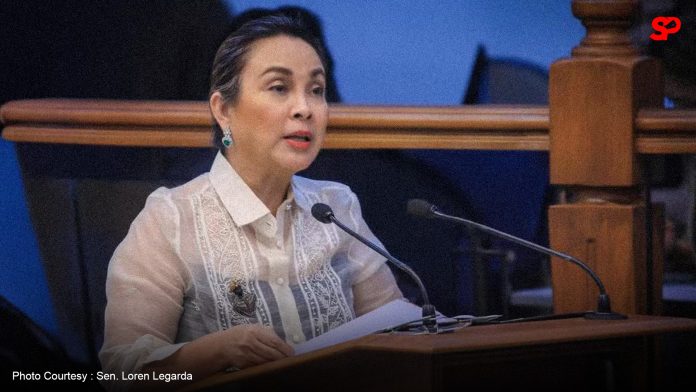MANILA – Senator Loren Legarda has filed a bill seeking to promote equity and inclusivity in the allocation of the tertiary education subsidy (TES) under Republic Act (RA) No. 10931 or the Universal Access to Quality Tertiary Education Act.
The TES program provides financial support to eligible Filipino students enrolled in state universities and colleges (SUCs), local universities and colleges (LUCs), private higher education institutions (HEIs), and technical vocational institutions (TVIs).
In filing Senate Bill No. 2905, Legarda said findings by the Second Congressional Commission on Education reveal that the share of TES grantees from the poorest households (Pantawid Pamilyang Pilipino Program or 4Ps and Listahanan) has dramatically decreased — from 74.24 percent in academic year 2018-2019 to only 30.74 percent in 2022-2023.
She said that conversely, subsidies for students from private non-state learning institutions (PNSLs) increased during the same period from 25.76 percent to 69.26 percent.
“This shift warranted careful reassessment, as it challenges the intent of R.A. No. 10931, which was crafted to ensure that the most vulnerable members of our society are given priority and support,” she added in a Wednesday news release.
SB 2905 seeks to address these disparities by guaranteeing automatic TES eligibility for students from 4Ps households who have completed senior high school and are admitted to higher education institutions recognized by the Commission on Higher Education (CHED).
Remaining TES slots will be allocated based on household per capita income to ensure fairness.
Additionally, Senate Bill No. 2905 includes provisions for monitoring and quality assurance mechanisms, requiring regular evaluations and institutional assessments to ensure the TES program meets its goal of bridging the gap between poverty and opportunity.
“Education remains the most effective tool in breaking the cycle of poverty,” Legarda said.
“By ensuring targeted assistance and enhancing student financing schemes, we place those most in need at the forefront of our relentless pursuit of universal and equitable access to education. In doing so, we not only empower individuals to realize their full potential but also drive forward the social and economic development of our nation.” (PNA)

